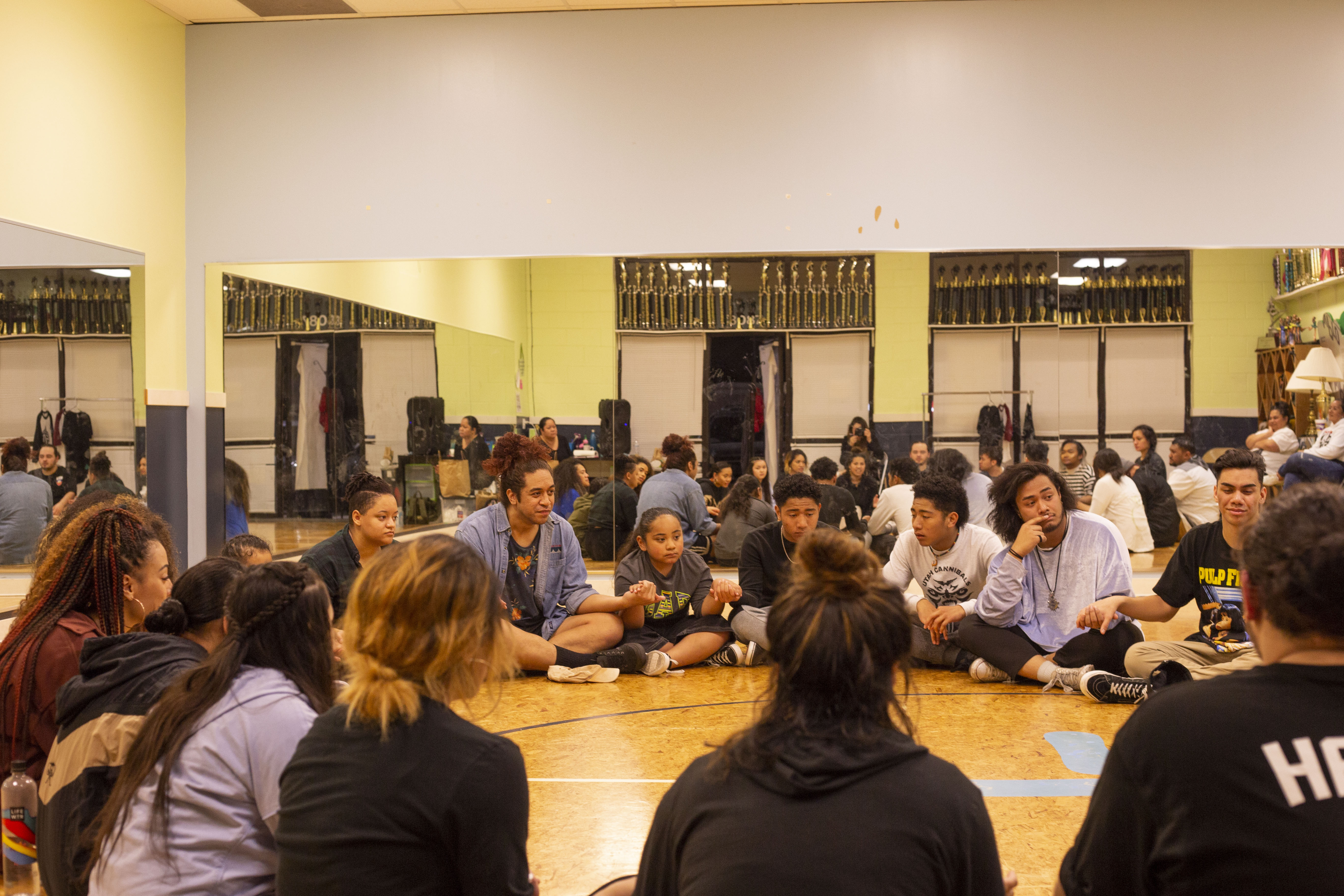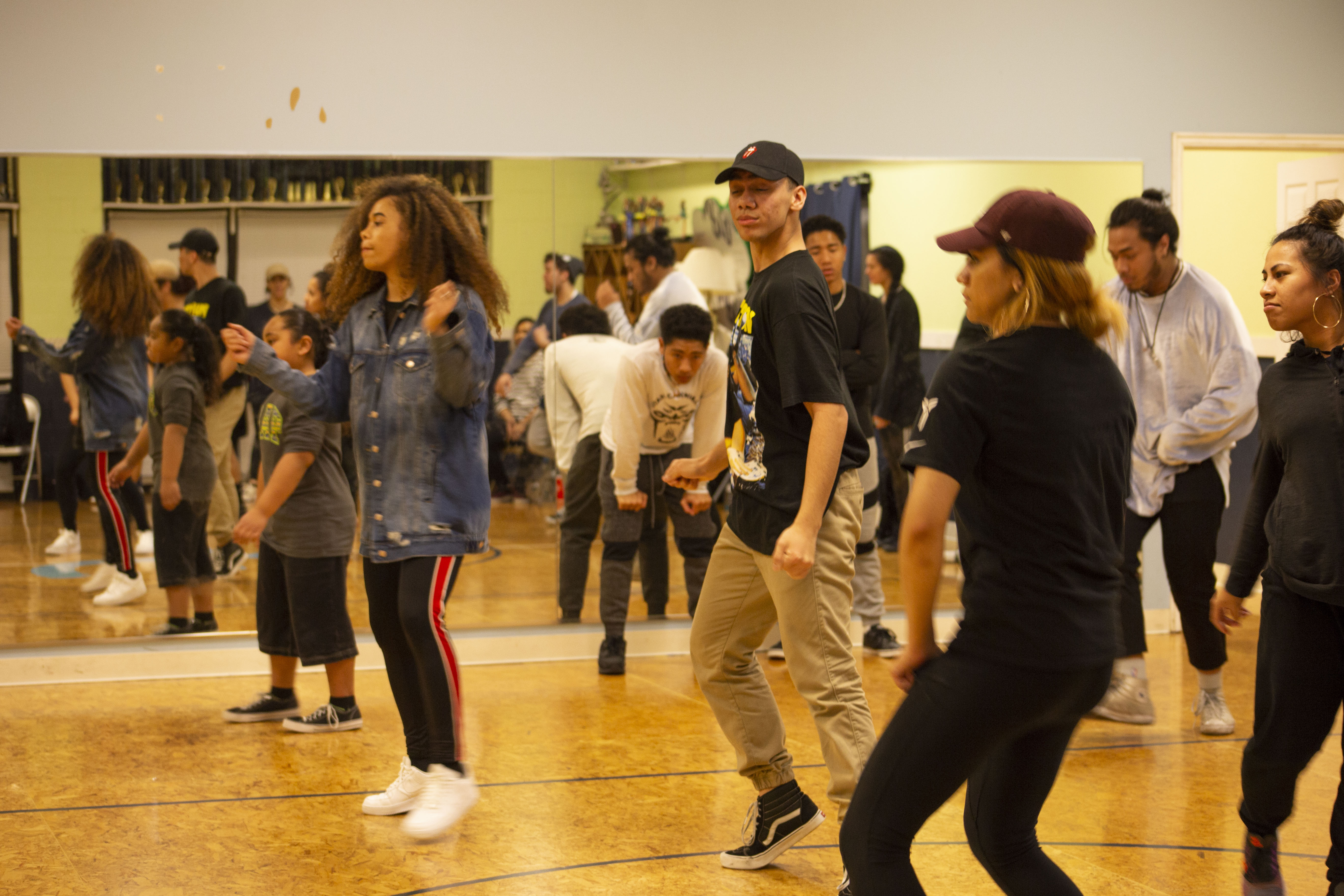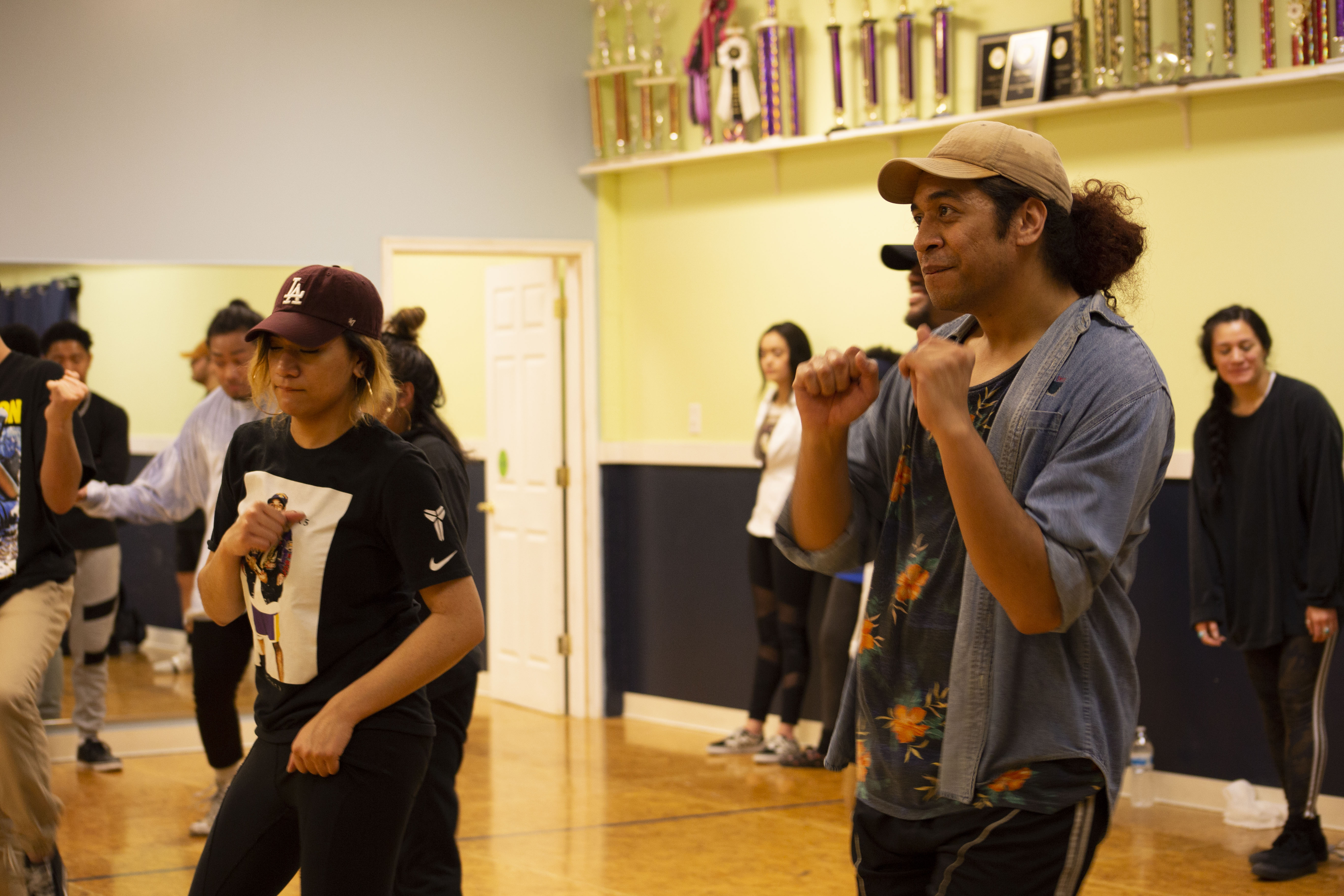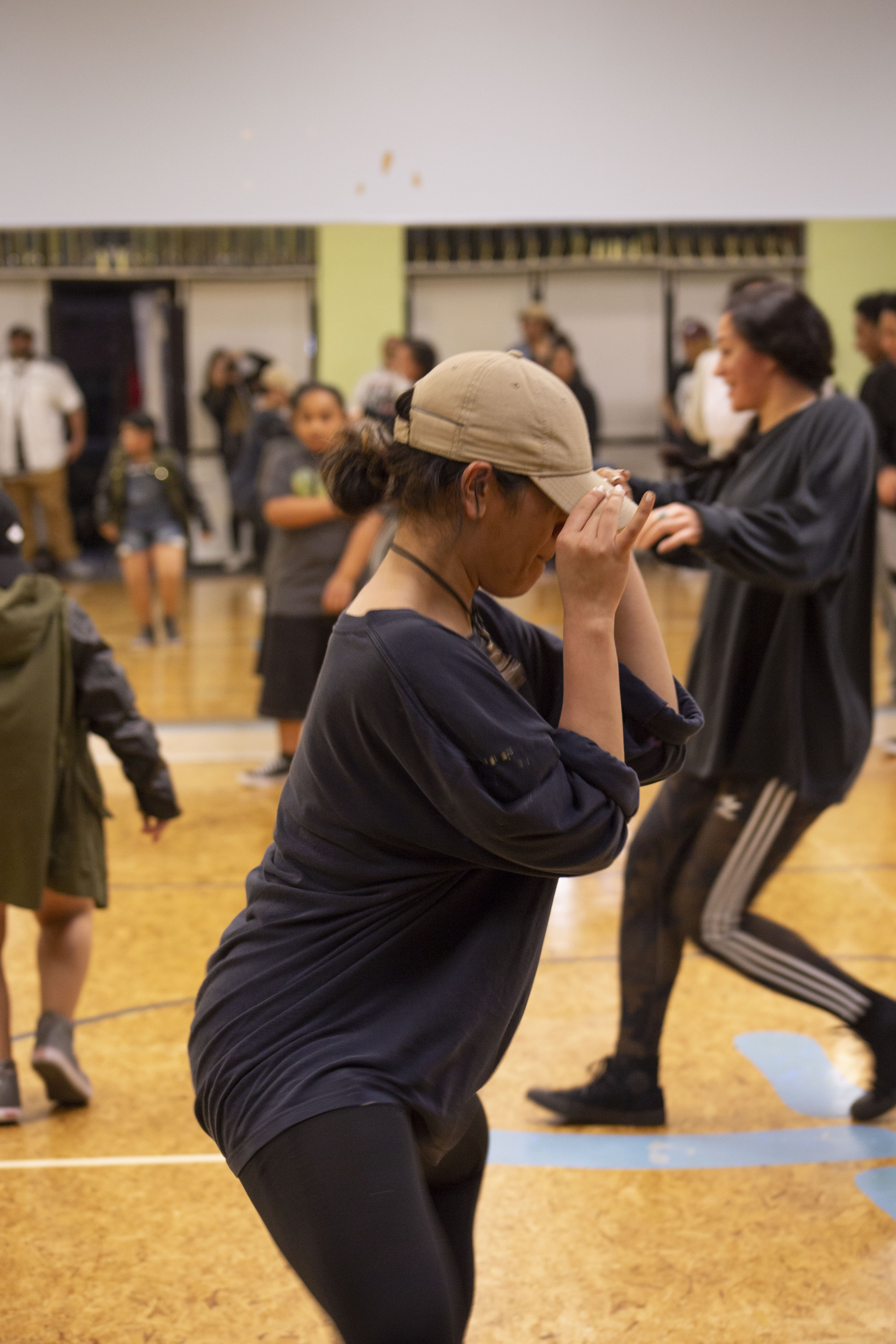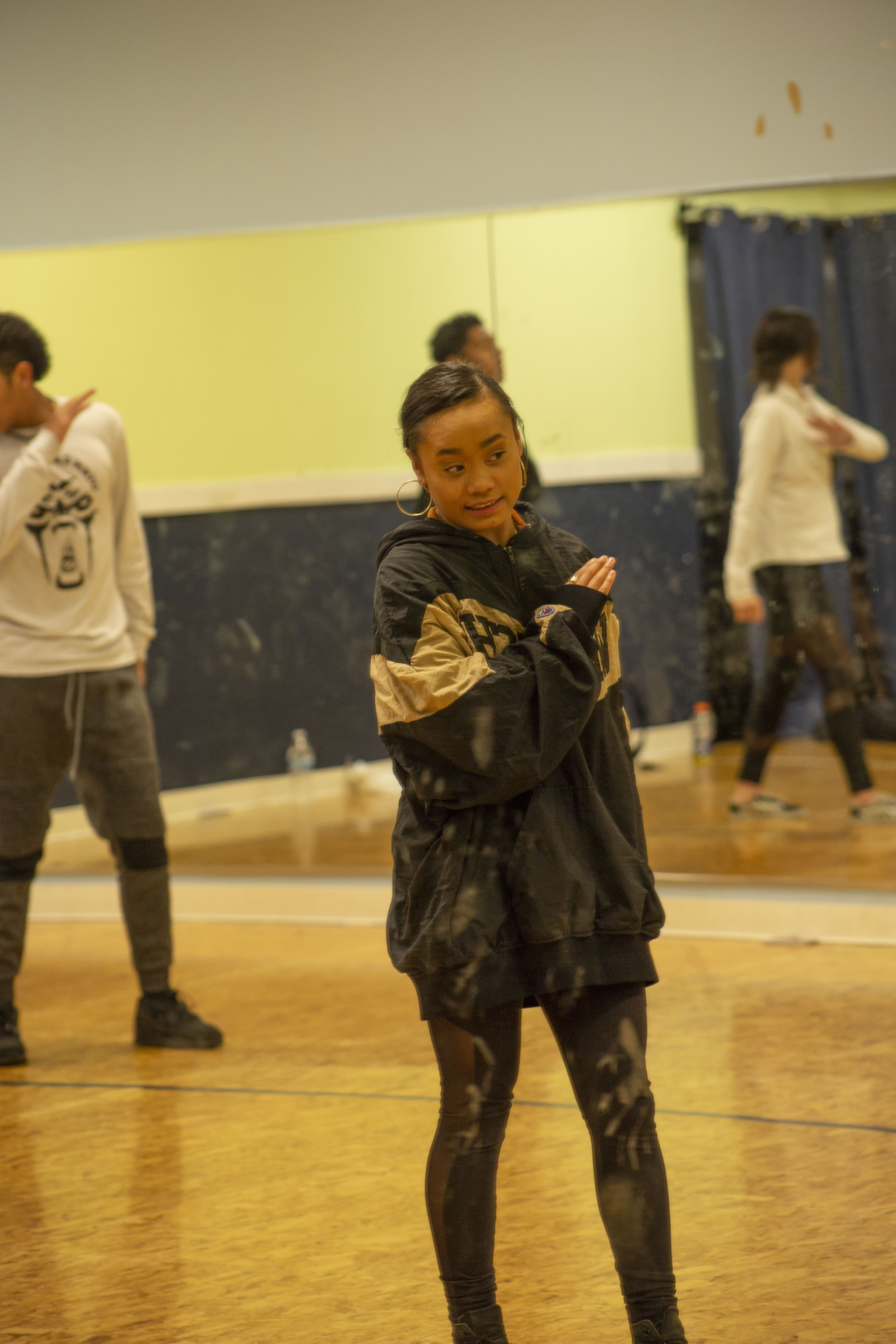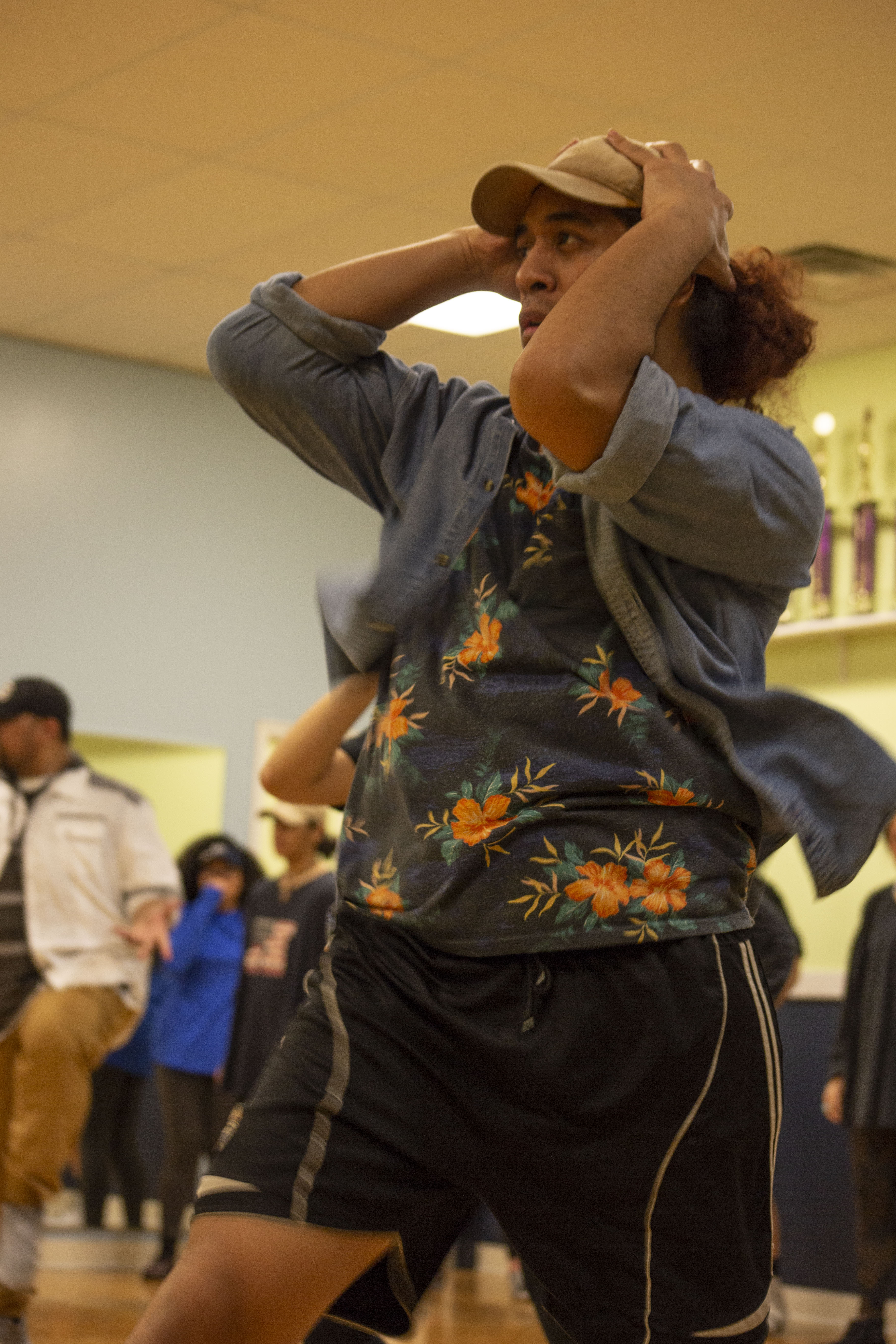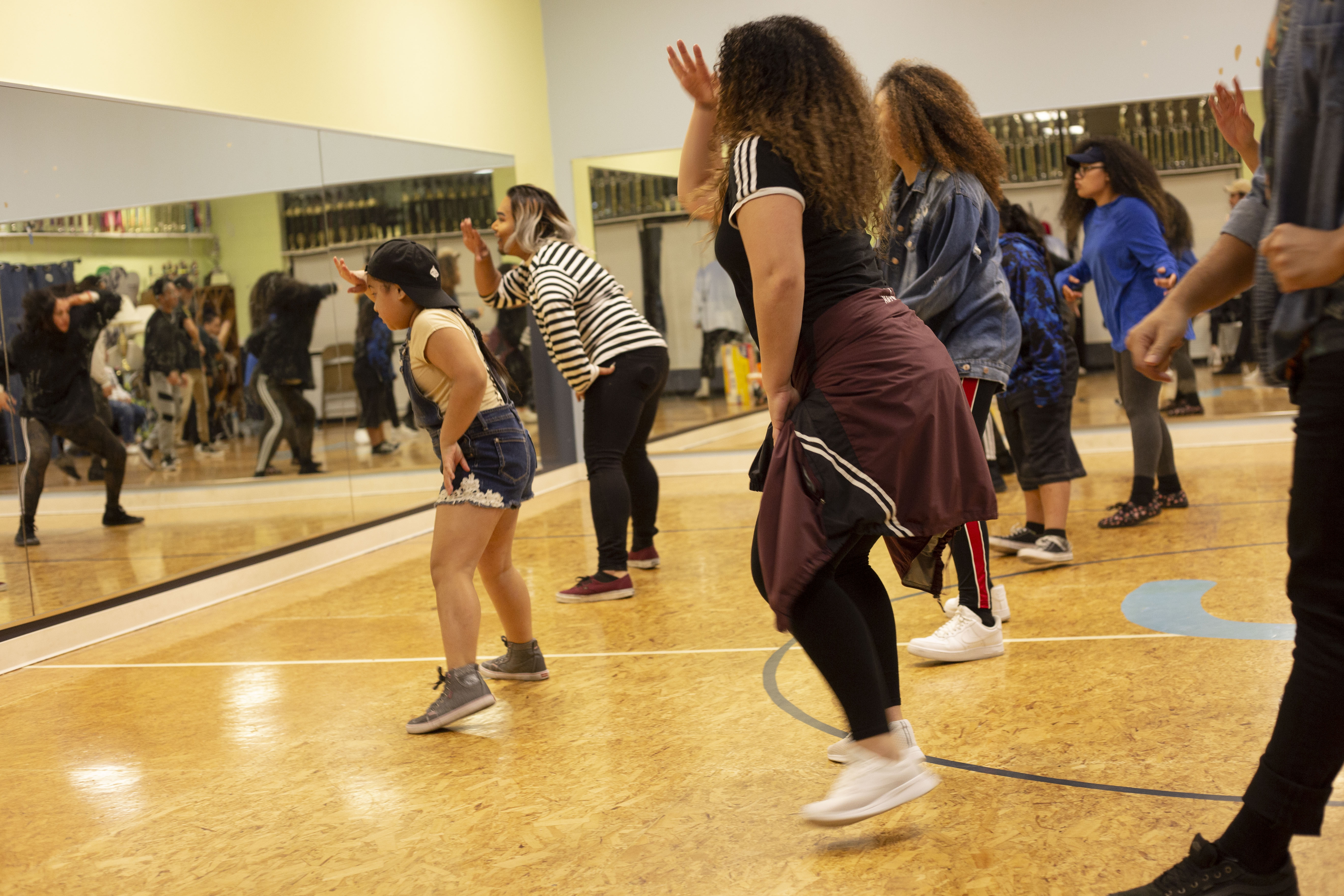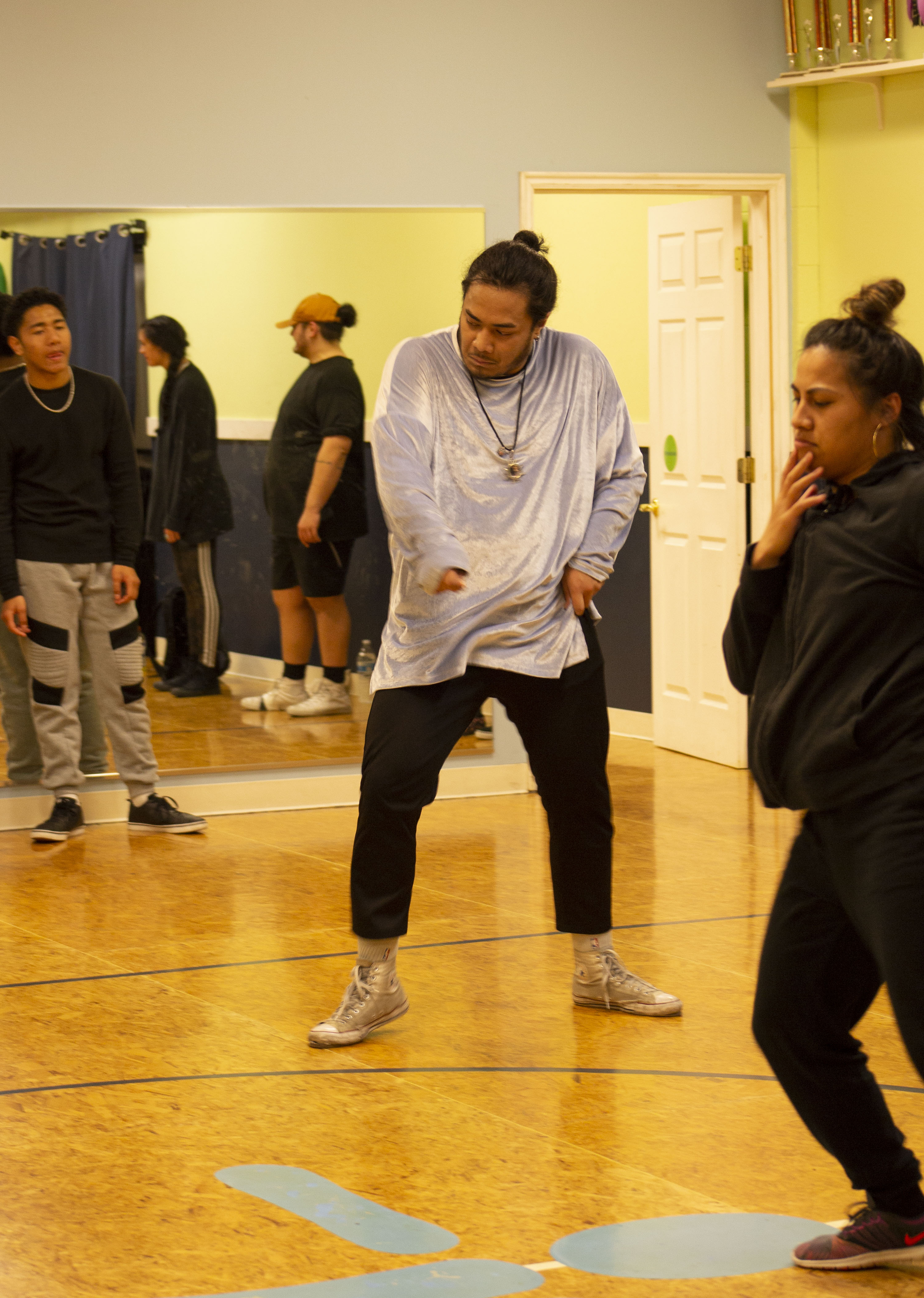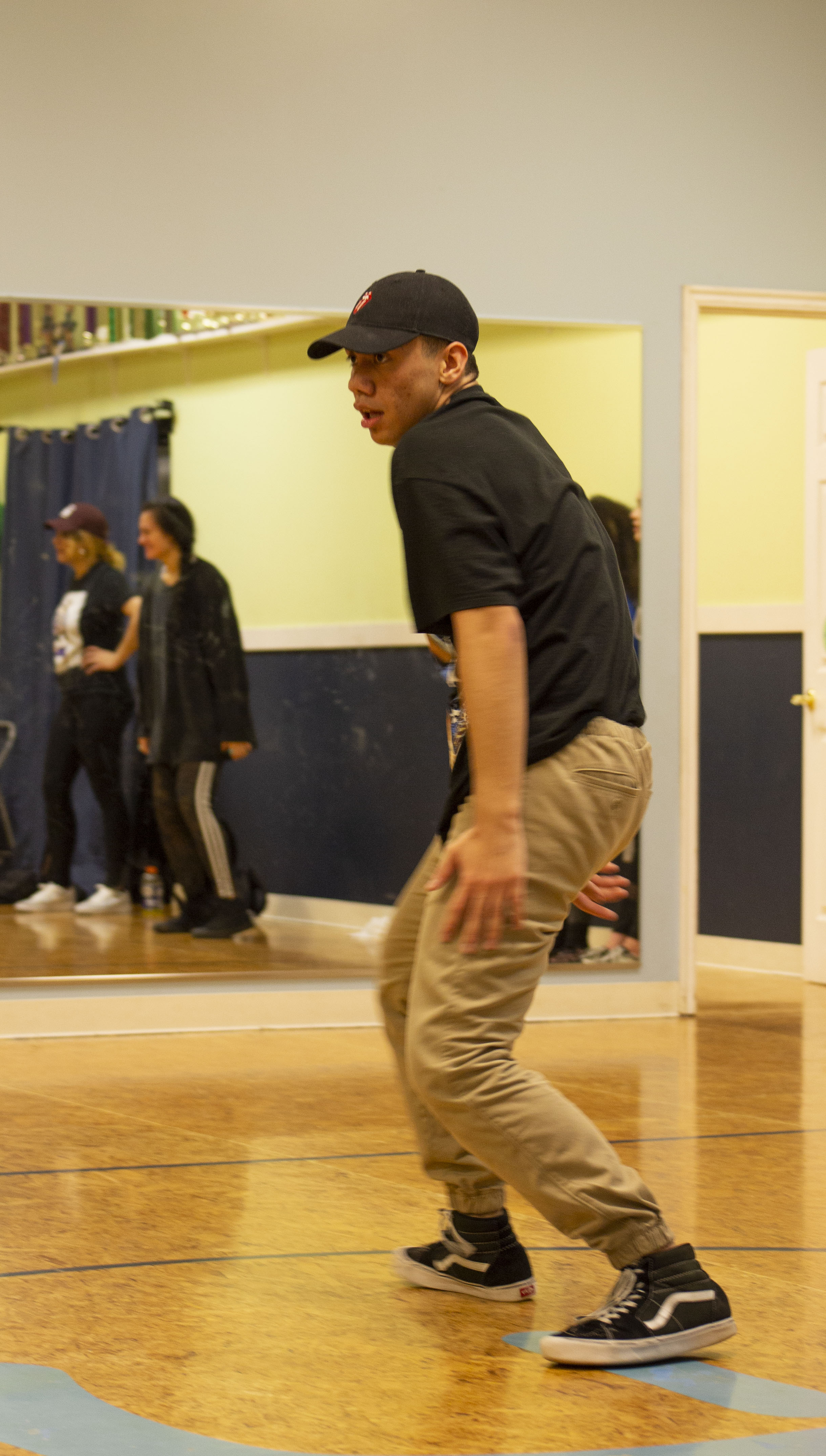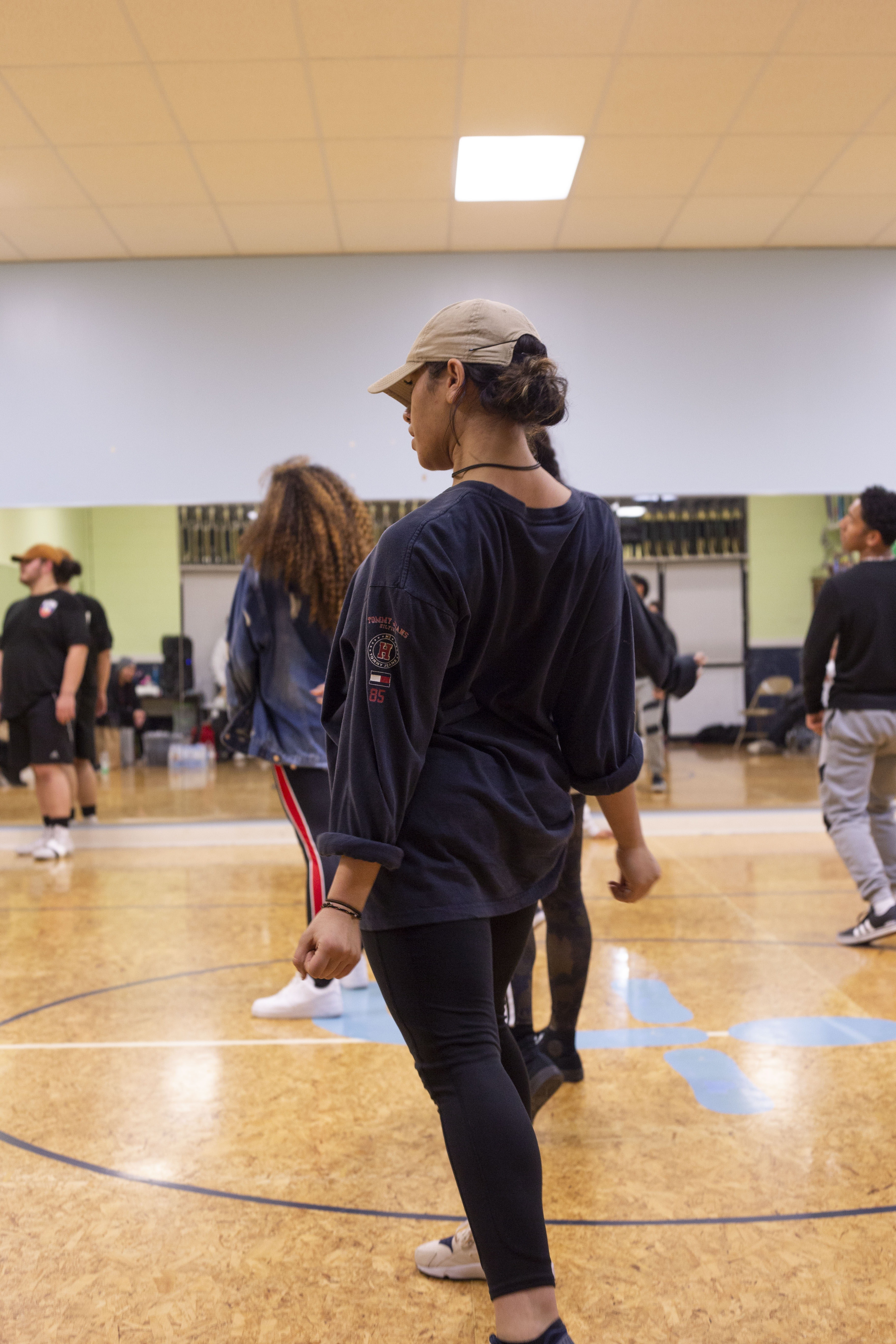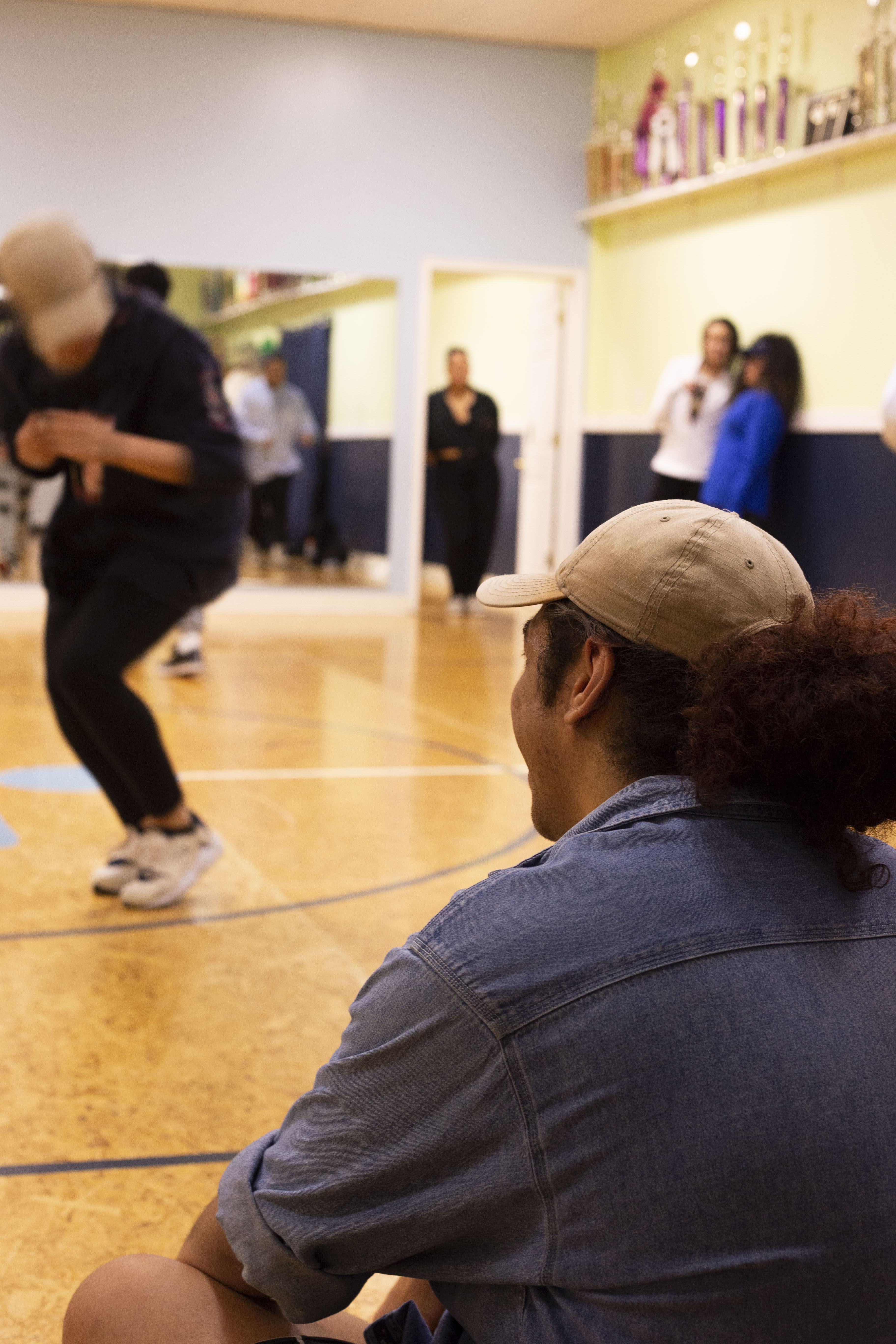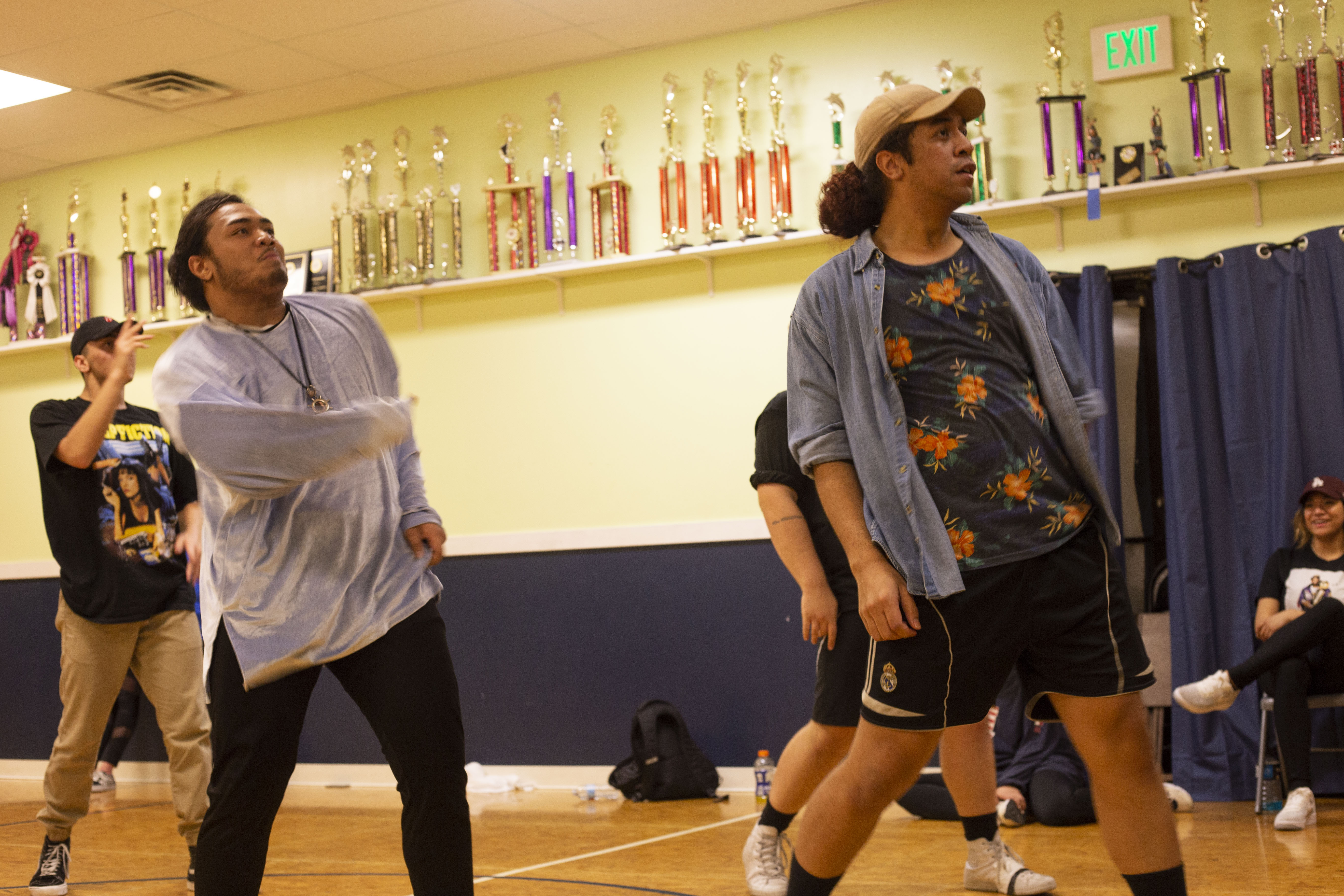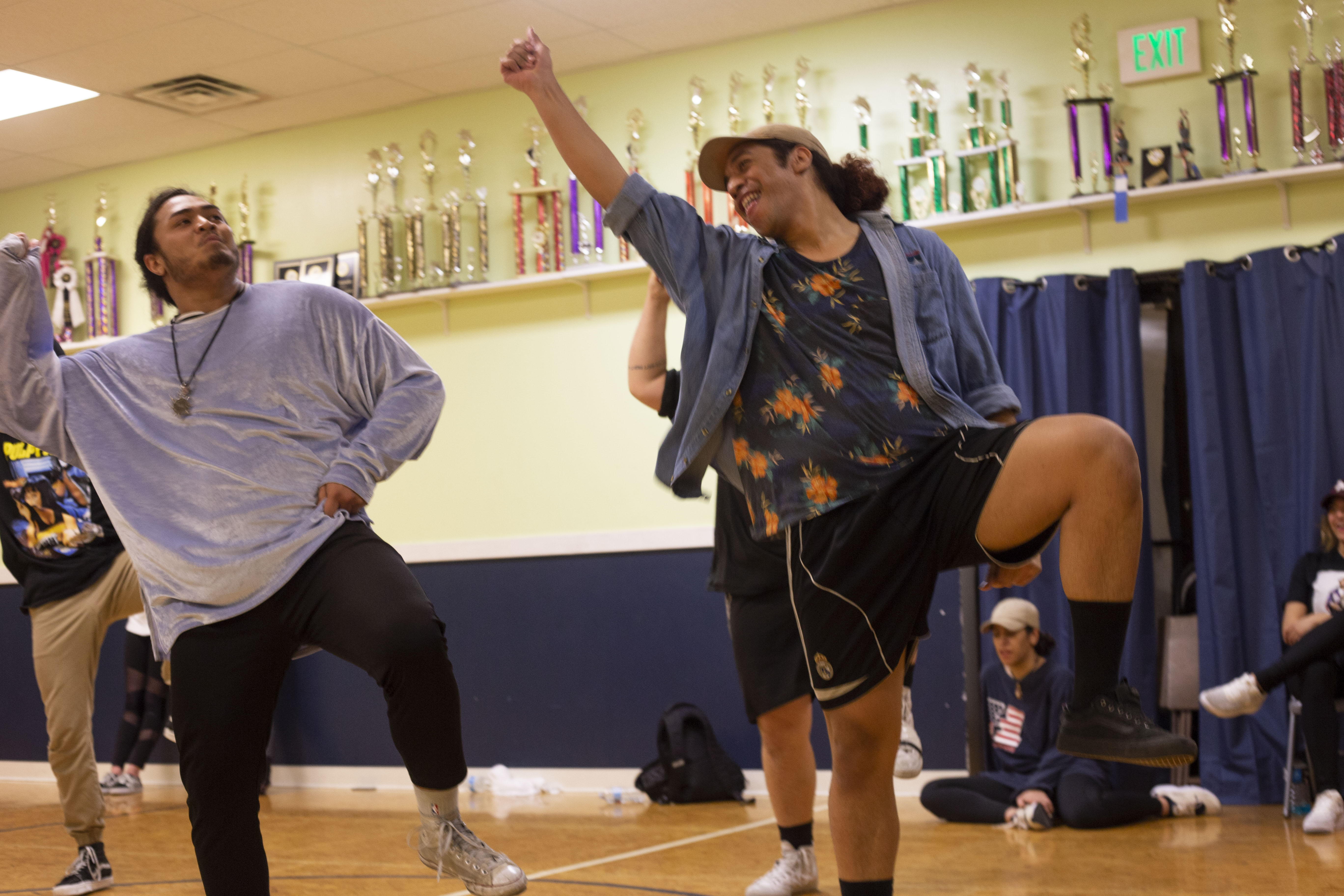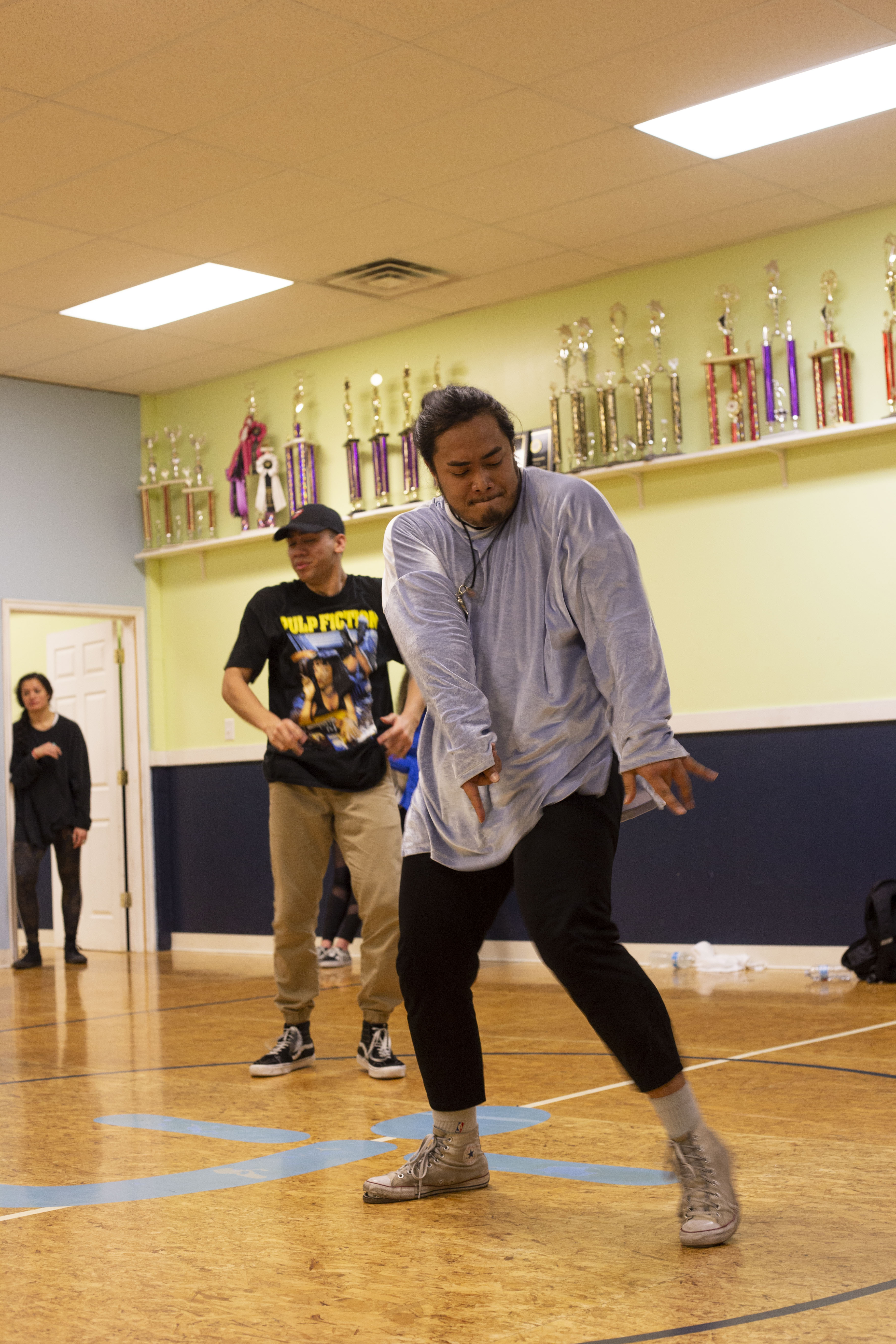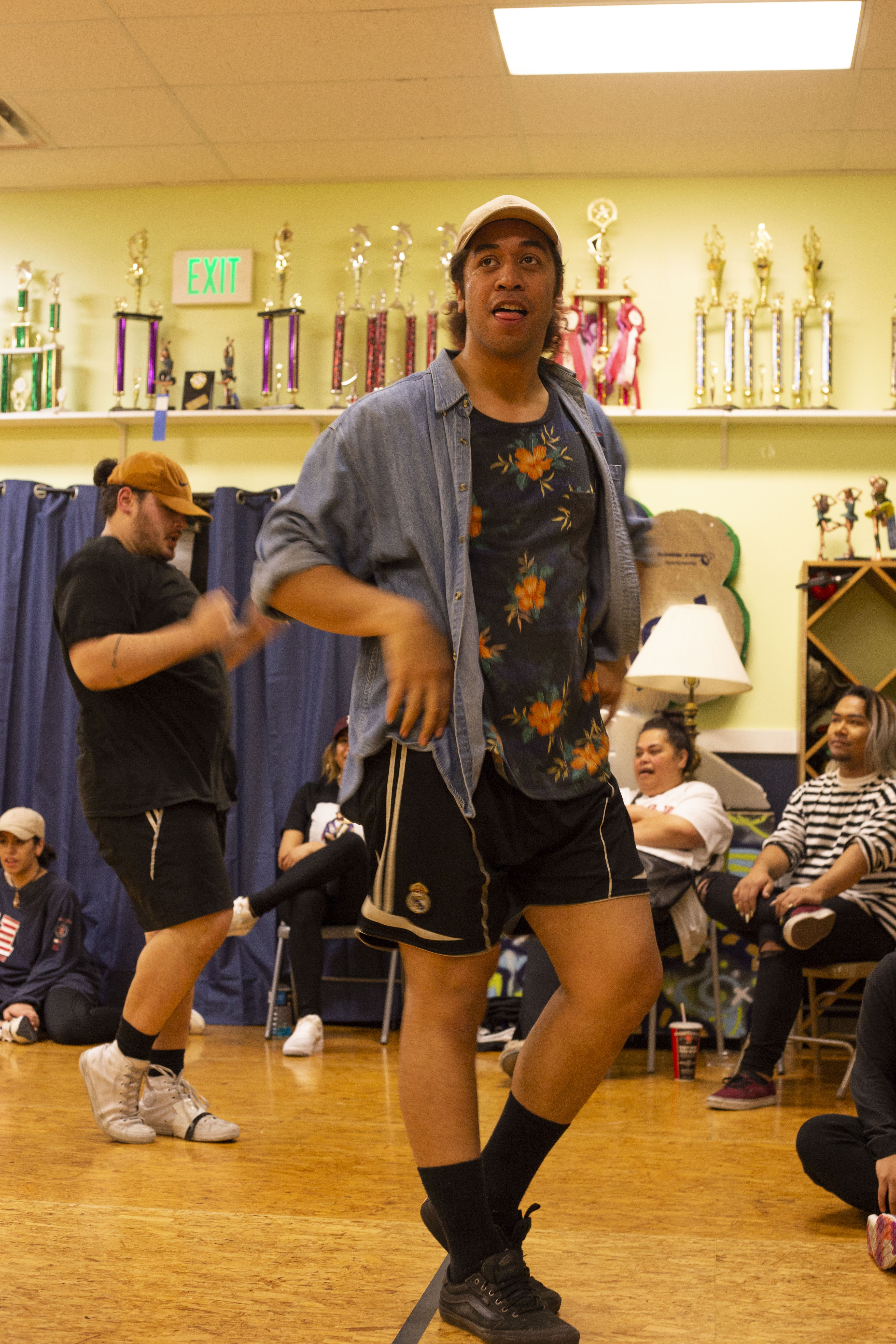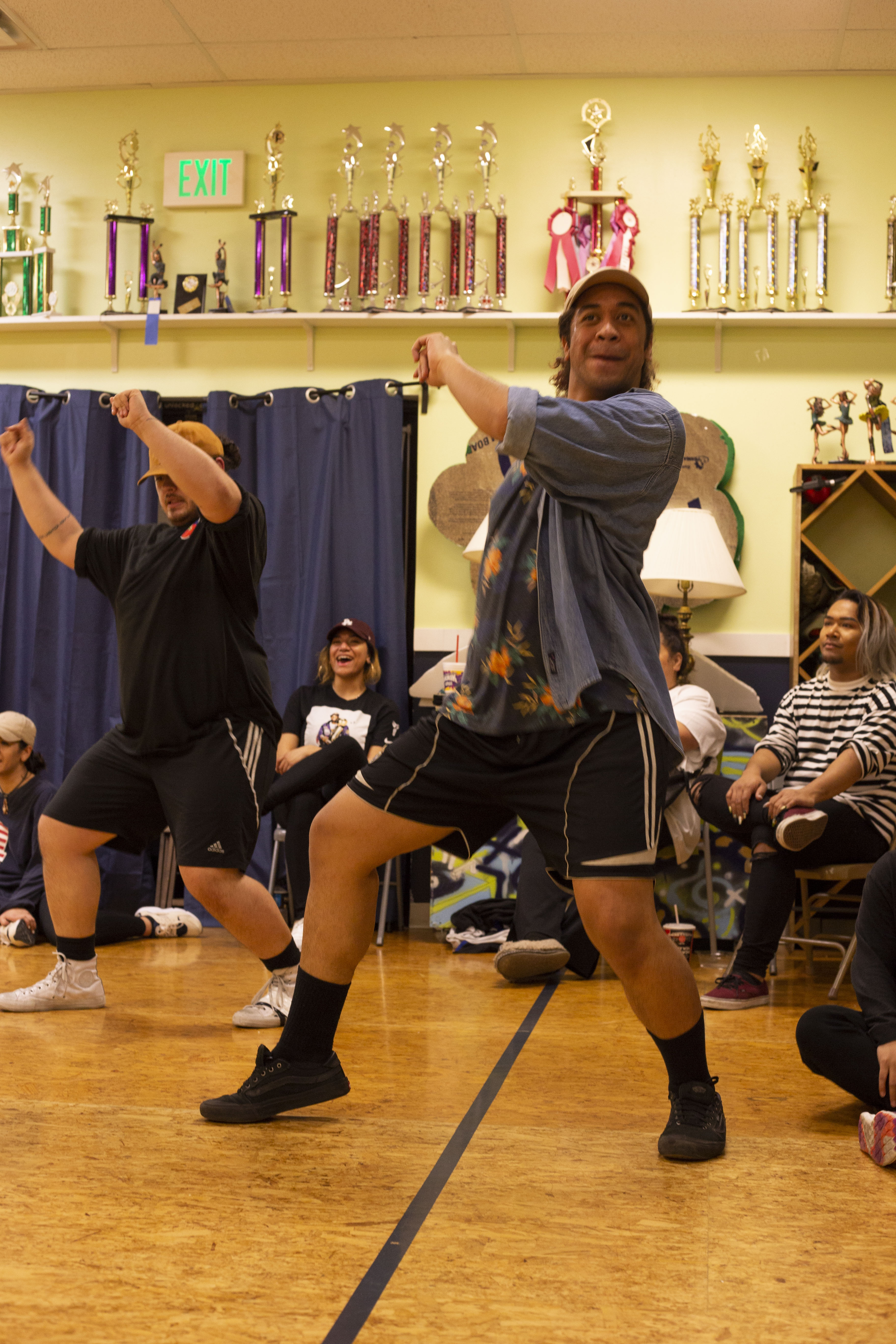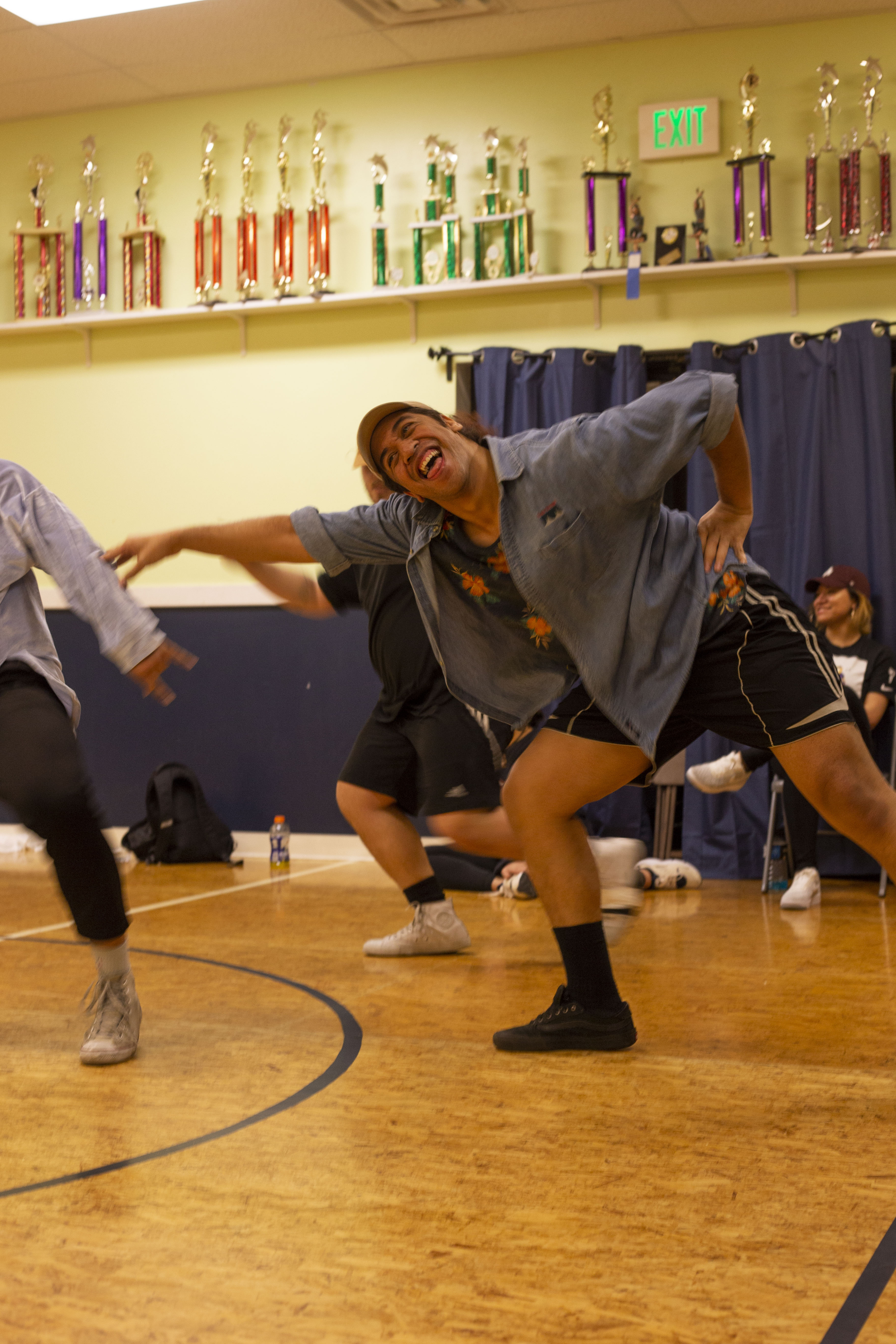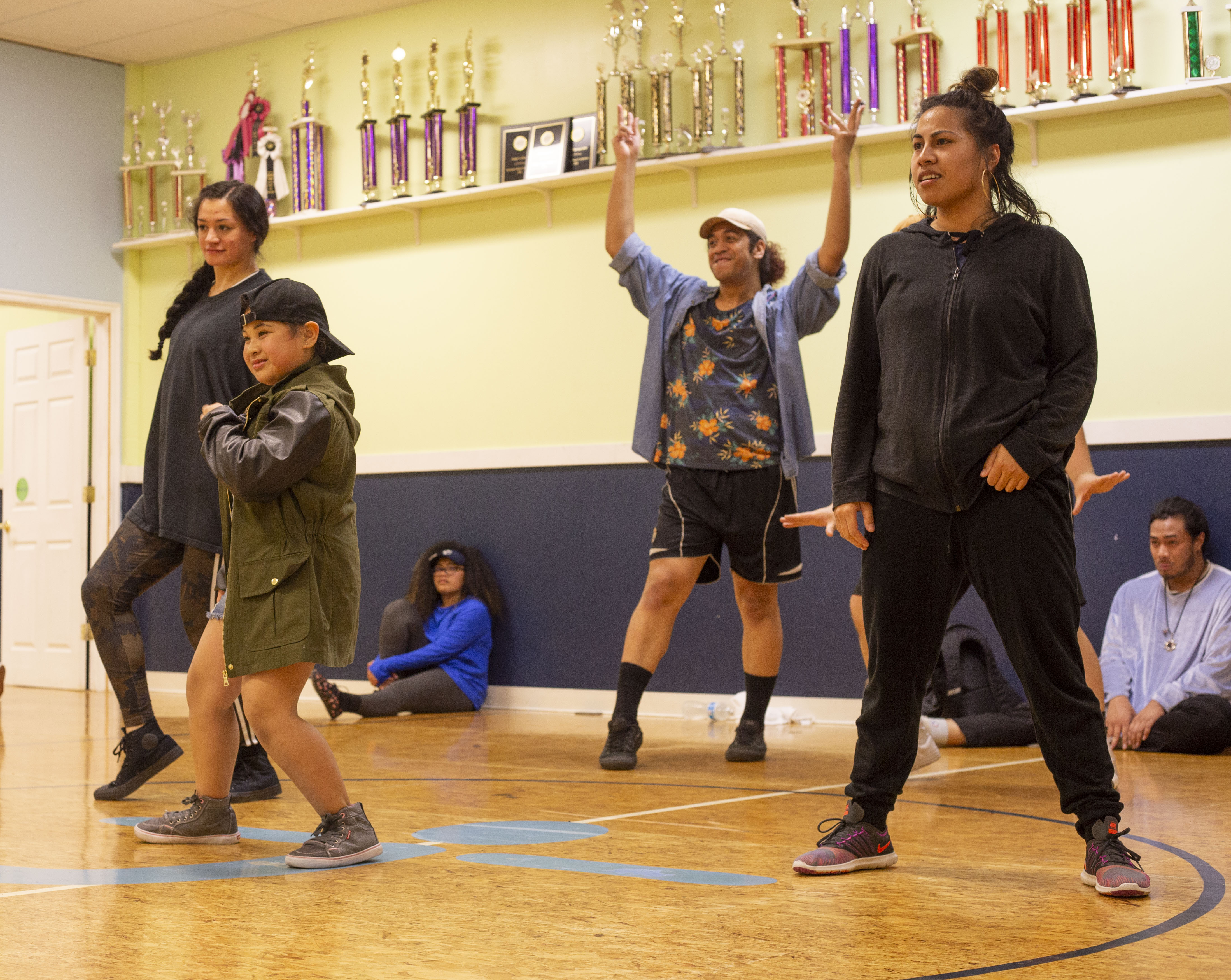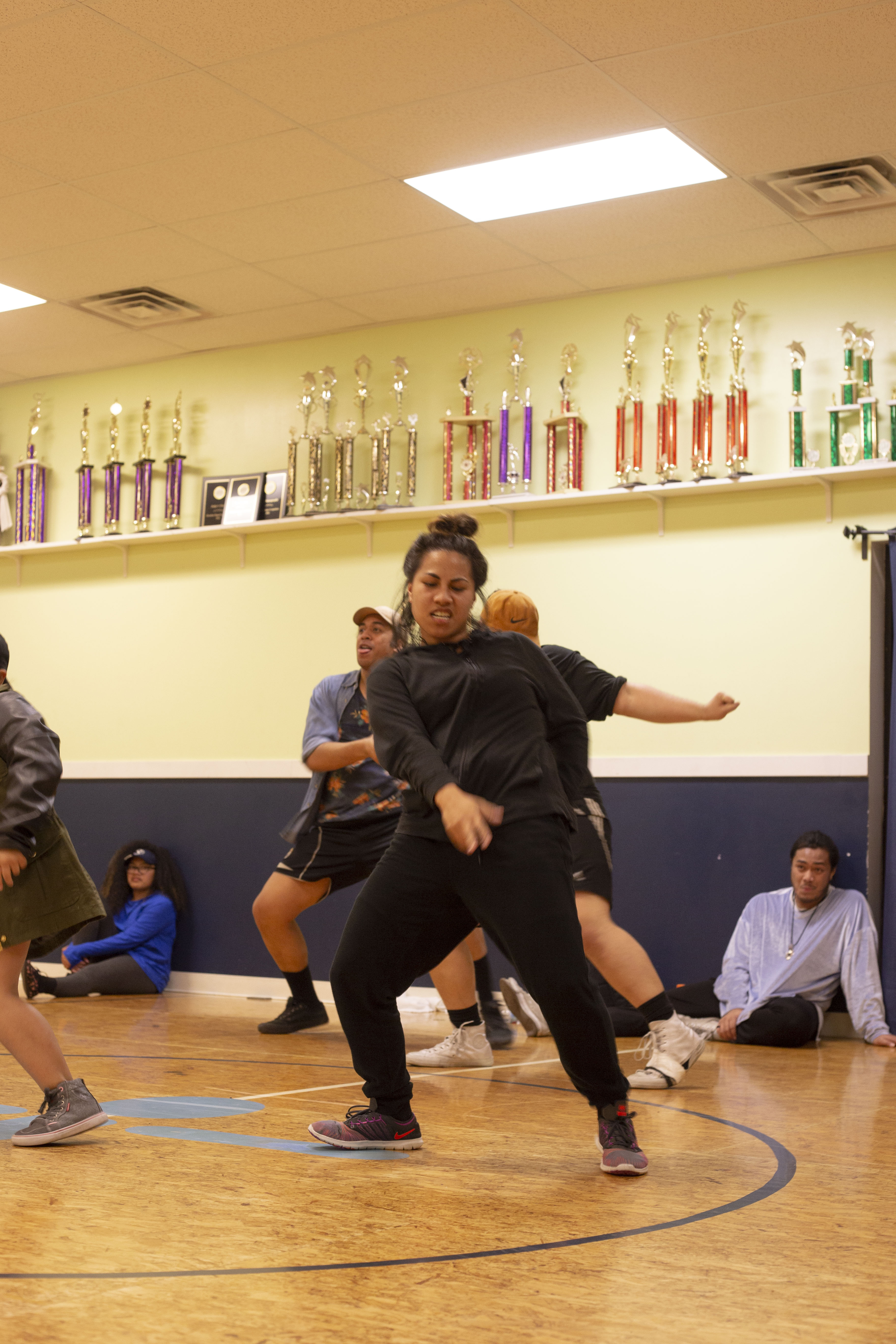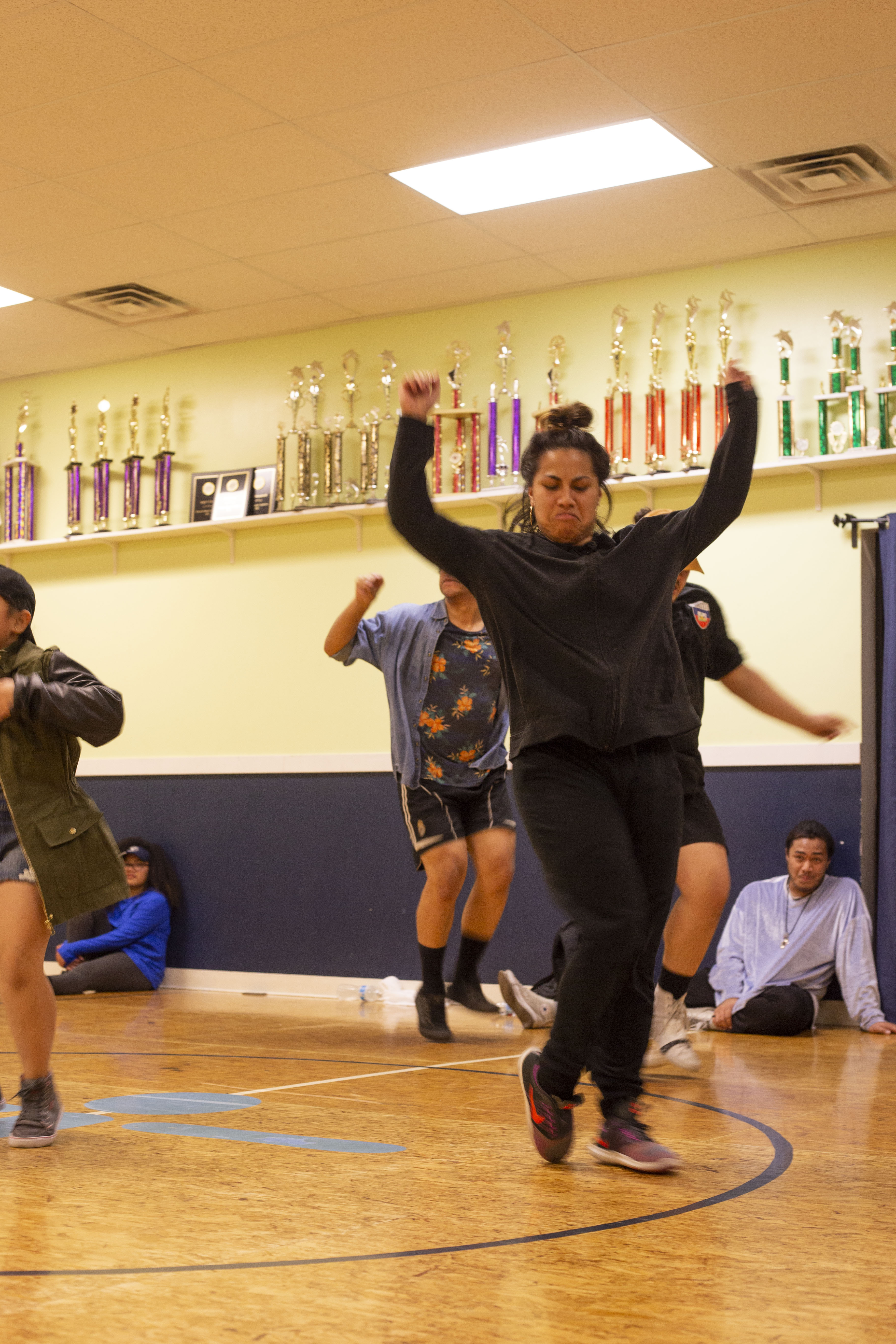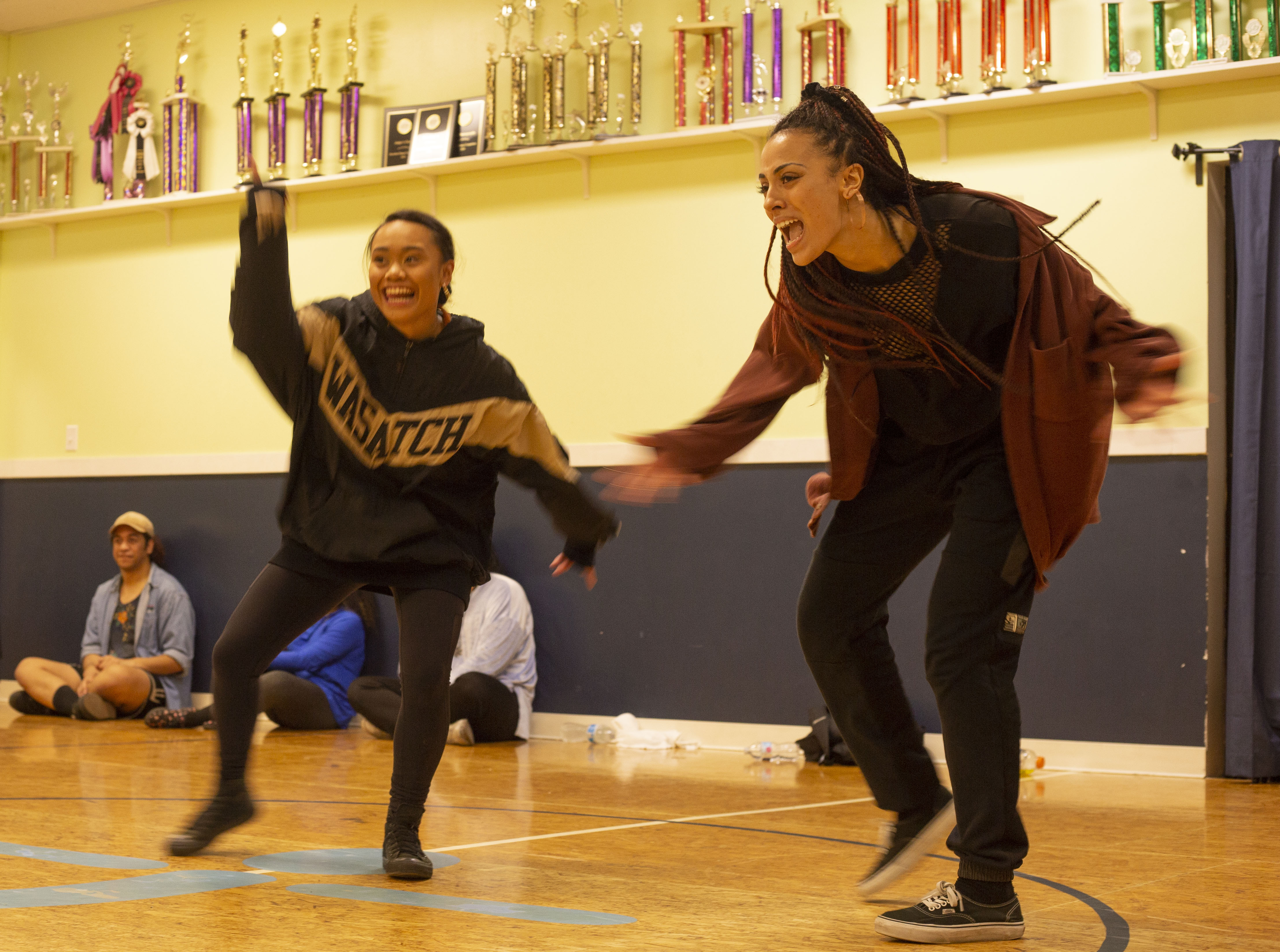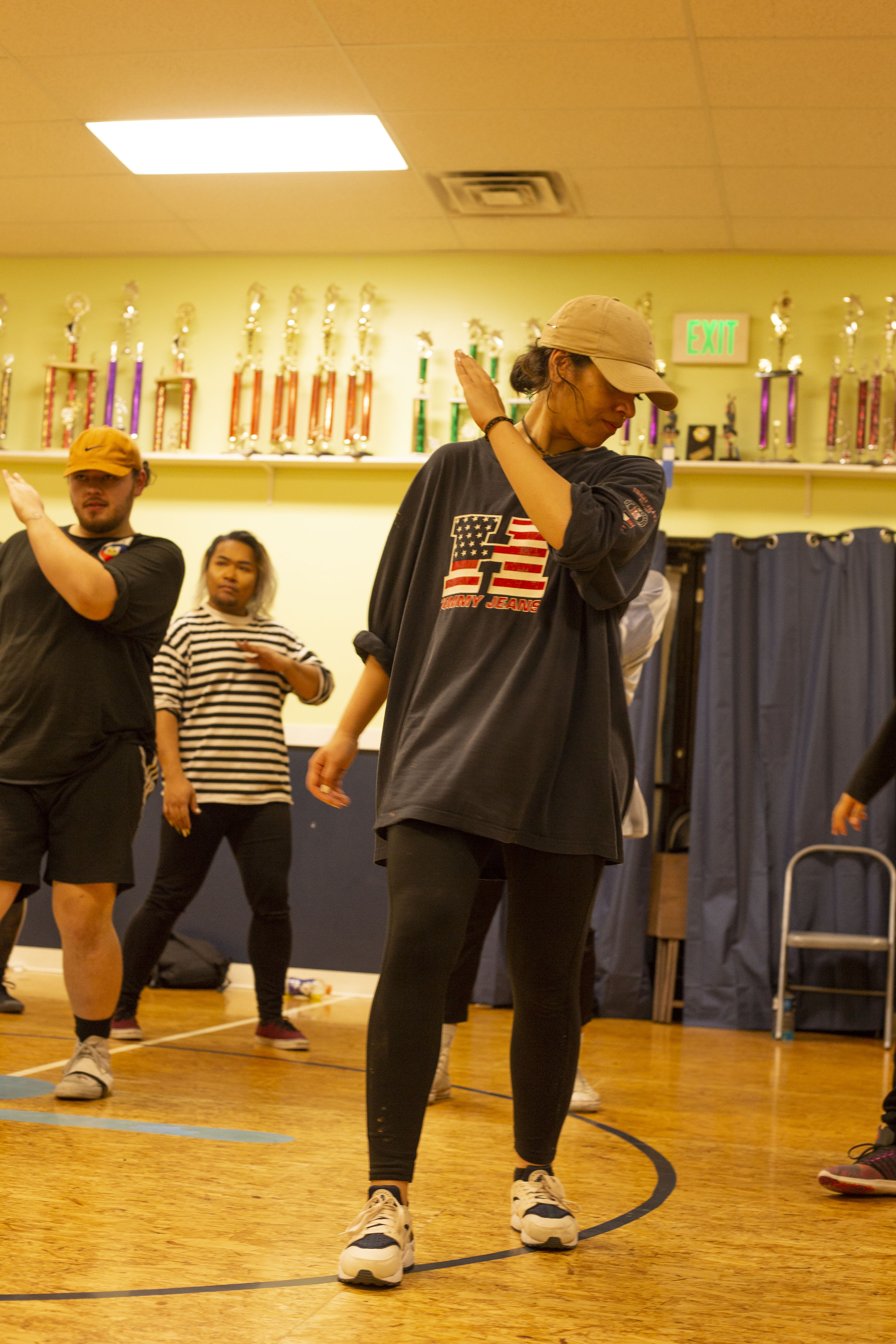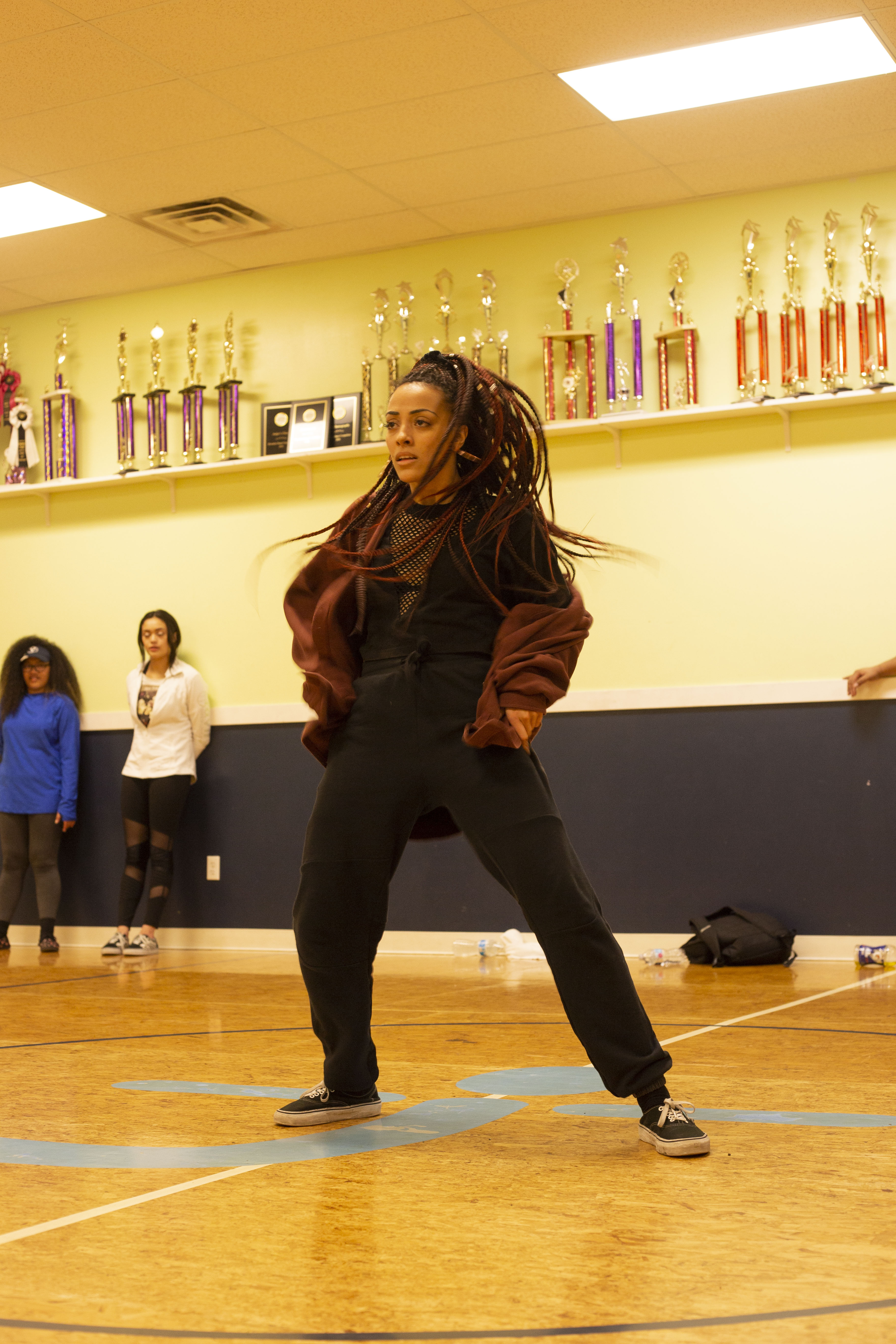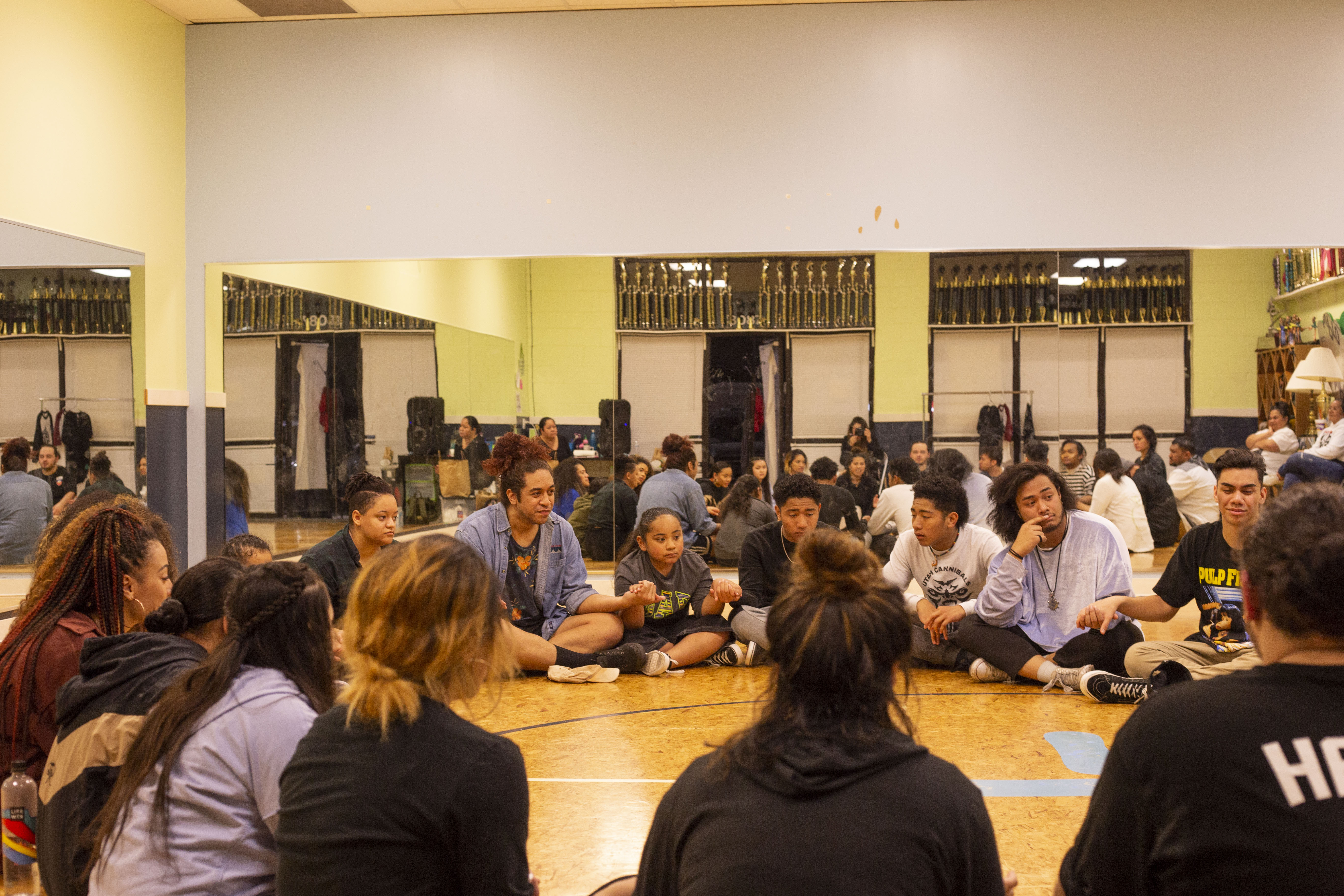At the edge of Salt Lake City in a small quiet neighborhood, a grocery store is closing for the night as the rest of the town gets ready for bed. It’s 10:00, the streets are dark and the parking lot is empty, except for a glowing light at the far end of the building. Music is blasting, laughs can be heard from the street, it sounds like a party. This is where the Nu Tribe gets together every Thursday night.
The energy in the Just Dance studio at 8087 W. 3500 South in Magna is contagious. The air is hot, the energy is high, everyone laughs but focuses on the teacher for the day when it’s time to dance. On that late night in early March, the teacher was a sassy but passionate man named Nate with a confident 9-year-old sidekick named Susie. The song of choice was “Oh” by Ciara.
Susie is the DJ and quickly runs back and forth between the plugged in iPhone and the front of the dance floor. The students yell and laugh when the music starts and follow the dance moves Nate taught them earlier in the night, with a mix of their own style.
“It’s the only time and place that we can practice for cheap,” Ofa Vahe said. “But we don’t mind. We’re just happy we get to teach dance.”
Vahe is one of the original founders of the Nu Tribe, alongside other dancers Moana Aiono and Teresa Kuma. The Nu Tribe is a Utah-based dance crew consisting of only Polynesian dancers who travel all over the state to teach others about their heritage. They also provide the younger generation of Polynesians a safe place to dance.
Each week a member of the Nu Tribe teaches a class of about 20 students, usually members of the Polynesian community, for an hour. The dance styles change every week so that the students learn different traditional dance routines.
“Our rule is that no matter what style the teacher brings that week, you have to fully submerge yourself in that style,” Vahe said. “It doesn’t matter if it’s hip hop, ballet, contemporary, or anything else the teacher wants to do that day, you have to do it.”
The Nu Tribe teachers mix up their styles of dance to teach the students about different forms of expressing themselves and getting that sense of love and family that the Polynesian community teaches.
Polynesian dancing started as a way of communication for most of the islands in the Pacific, including Tahiti, Tonga, Samoa, Fiji and Hawaii. Traditional Polynesian dancing was used to tell a story and to convey a literal meaning that they carry with them after they leave.
After the first hour, the second teacher steps up to teach her choice of dance for the day. She’s a quiet, petite woman who quietly steps up to the front of the class. But once the music starts she becomes a confident and sexy hip-hop dancer.
“That’s Hannah Gagon,” Vahe said. “Growing up, she was always extremely shy and reserved but once she was introduced to the Nu Tribe, we realized she was this insanely talented dancer. Now she teaches her own classes throughout the week.”
The Nu Tribe brings together those in the Polynesian community and gets them to step outside of their comfort zones and enjoy the art of dance expression. Just like traditional Polynesian dances, they aim to tell a story.
Once everyone has learned the two different dances for the night, the teacher splits the class up by groups and has the students dance together. After that, they separate everyone one by one and eventually, a student will find themselves dancing alone.
This technique allows a student who stepped into the class for the first time, shy and hidden in the back of the room, to suddenly show confidence on their own as other members of the class cheer them on, chant their name, and even record them on their phones to share on social media so they can share the love with others not there.
“After I broke up with my fiancé, I was depressed and needed friends,” said Dook Kelsall, a member of the Nu Tribe. “I found the Nu Tribe through my friend Ofa and now we’re like family. He gave me a safe place to express myself and helped me through that tough time.”
By now, it’s midnight and it’s the end of the second hour. Everyone gathers around in a circle to share positivity and any news they have involving the class or news within the Polynesian community. They hold hands, introduce new people to the class, and say a prayer.
“Thank you for the gift of dance, amen,” says a member of the Nu Tribe giving the prayer after they all bow their heads and close their eyes.
Once the prayer is over, they gather closer together in a type of group hug and share more positive words and love with each other. Vahe proclaims, “Bring the fire, bring the energy!” and the entire group yells “Nu Tribe!” They give hugs and high fives and gather their things. Some even still dance around and laugh. It’s late at night and many of the students have to wake up early the next day for school, but they don’t care. They’re with family and they’re just there to have fun, learn and feel loved.
